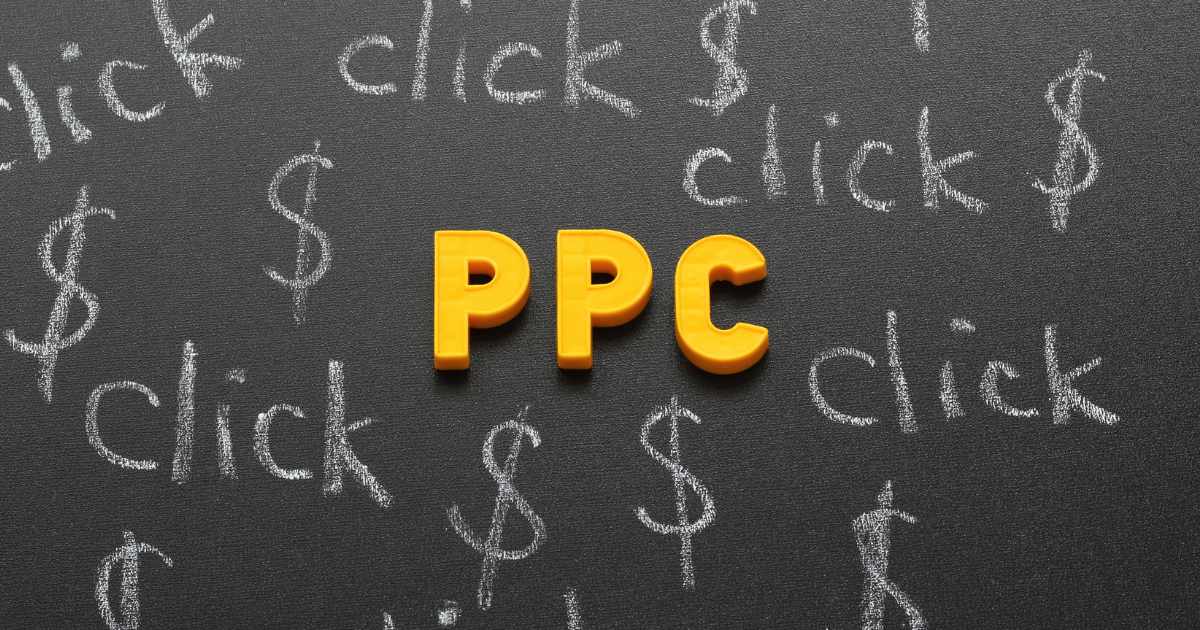PPC is the acronym for pay-per-click. Pay-per-click advertising is, as the name suggests, advertising where the advertiser pays a certain amount each time their ads are clicked on by a user.
A typical example of PPC would be the “Sponsored” ads you see right at the top of Search Engine Results Pages (SERPs) when you’ve searched for a product or service. There are different platforms for PPC advertising, namely Google Ads, Facebook Ads, and Microsoft Ads, to name a few.
Advertisers choose this type of advertising because the results tend to be quicker than organic marketing efforts, which can take months to produce significant results, whereas PPC advertising, that is done correctly, can show results in the form of changes such as increased web traffic and conversions.
Understanding PPC Auction and Bidding
As an entrepreneur, you may have wondered how bidding on keywords to display your ads on search engines like Google works. A PPC auction is a virtual bidding war where advertisers compete for ad priority on specific keywords. When a user searches for a keyword, the search engine hosts an auction to determine which ads will be prioritised and how they will appear.
Having an ad with the highest bid doesn’t guarantee that you’ll win. SEO still plays a big role in your ads getting chosen. The search engine also considers factors like the relevance of your ad, SEO, user demographics, quality of the landing page, and more.
This ensures that search engines display useful ads that are relatable to users. Businesses using PPC ads need to make sure they can effectively create relevant ads for their target audiences while bidding to give them a good chance of appearing at the top of SERPs.
Benefits of PPC Advertising for Small Businesses
There are various benefits of using PPC for small businesses. These benefits include:
- Reach your target audience: PPC ads require you to have a deep understanding of your audience, and ranking for keywords that your audience is searching for lets you reach them.
- Measurable results: Analyse performance through reporting tools.
- Immediate visibility: PPC ads can get your business in front of potential customers quickly, as opposed to organic marketing.
- Cost-effective: PPC advertising allows you to set a budget and only pay for ads that are clicked, making it a cost-effective way to reach potential customers.
- Compete with larger businesses: PPC ads give small businesses a chance to compete with larger businesses for ad space.
- Data-driven decision making: PPC advertising provides insights into customer behaviour, allowing you to improve your strategy based on data-driven decisions.
- Scale your advertising: With PPC ads, you can scale your advertising efforts as needed, which accommodates the financial fluctuations that may occur in a small business.
How to Set Up a Profitable PPC Campaign
As a small business, you need to be intentional and strategic with your PPC advertising strategy. To set up an effective PPC campaign, here’s what you need to do:
1. Define your goals: Before launching a PPC campaign, identify what you want to achieve. Whether you’re looking for more website traffic, lead generation, or sales conversions, your goal will determine how you create your ads and your KPIs.
2. Conduct keyword research: Keywords are crucial in allowing your audience to find your ads. Keyword research tools like Google Keyword Planner, SEMrush, Ahrefs, and others help you find the most relevant keywords for your content.
3. Set a budget: It’s essential for businesses to understand how PPC budgeting works. Decide how much you’re able to spend daily or monthly. Set budgets not only on your capability, but also on your campaign goals. You can start small and scale based on performance.
4. Create compelling copy: Your ad copy should be clear, concise, and persuasive. Ensure you keep your keyword research in mind, as well as your audience’s preferences. Make sure you include a strong call-to-action (CTA) to encourage your audience. Having strong CTAs is one way to improve your marketing results.
5. Optimise your landing pages: Search engines consider your landing page quality when ranking ads on SERPs. A landing page that is relevant to your ad, SEO-optimised, has a clear CTA, and is user-friendly has a higher chance of converting.
6. Set up audience targeting: When you’re advertising your business in South Africa, audience targeting is important. Use audience segmenting and demographic targeting to ensure your ads are targeted at the right people.
7. Run A/B Testing: To see what works best in your campaigns, run A/B tests on different ad variations. Test CTAs, descriptions, visuals, and headlines to find the best combination.
8. Monitor your campaigns: Track the performance of your live campaigns using analytics tools. Monitor key metrics and adjust bids and campaigns where necessary.
Crédito: Link de origem


